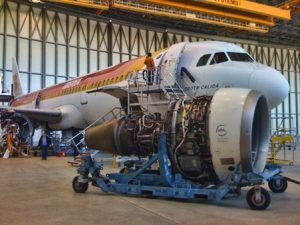The aviation industry has faced massive challenges recently, from plummeting travel demand during the pandemic to sustainability concerns around aviation emissions.
2023 was a year marked by convenience and safety as travelers sought a more straightforward and efficient airport experience. Biometric technology and smart passenger management systems improved airport efficiency globally, streamlining the journey from curb to gate.
Yet 2024 is set to usher in innovations, technologies, and operational models that will transform air travel this decade. Airlines prioritize sustainability, prioritizing Sustainable Aviation Fuel (SAF) as a critical initiative. This trend is expected to persist into the following year, potentially expanding to include emerging transportation modes like electric vertical take-off and landing (eVTOL) aircraft or Urban Air Mobility (UAM) vehicles.
So, what will 2024 bring for the aviation industry, and what are the critical industry issues to keep an eye on?
Read on.
Aircraft Design

New aircraft setups coming in 2024 reflect priorities around fuel efficiency, sustainability, passenger comfort, and customization. These models boast innovative engine technologies, lightweight materials, spacious cabin configurations, and private or premium space options.
Airbus will debut its highly efficient and sustainable A321XLR narrow-body plane early this year. The aircraft provides a more excellent range for transatlantic routes while reducing fuel burn through innovative Airspace cabin design.
Boeing plans to launch its new 777-8 jet in 2024, highlighting an eco-friendly design made partly from lightweight carbon fiber and advanced engines for energy efficiency.
Honda Aircraft Company will unveil its HondaJet 2600 concept plane on the private aviation side. The aircraft offers a spacious customized cabin experience, including options for private jet rental setups suited to business or leisure travelers.
Passenger Experience
Trends in 2024 will emphasize customization, technology interfaces, contactless processing, and sustainability across the passenger experience. Airlines focus on enhanced cabin designs, digital integration, streamlined check-ins, and environmentally friendly in-flight amenities.
Emirates Airlines recently unveiled its Premium Economy cabin upgrades, which will be launched this year. The seats, designed for comfort on long-haul flights, will have a wood finish and anti-stain leather with stitching details. Personal lighting, charging points, and dining areas accommodate work, entertainment, or relaxation.
Digitization will also improve travel this year through apps managing travel documentation, biometrics speeding check-ins, and e-tags tracking checked luggage. Inflight Wi-Fi and 5G connectivity will enable streaming entertainment, shopping, and social media.
Operations and Regulation

Behind the scenes, airline operations and regulations will evolve to enable growth while addressing sustainability concerns like emissions reduction. Expanding airports in developing markets contrast efforts around biofuels, carbon offsets, and taxes aimed at environmental impacts.
The long-awaited opening of the new Istanbul Airport, delayed from 2018 due to labor disputes and the pandemic, will launch in 2024 with an initial capacity of 90 million passengers annually. Eventual expansion plans will position Istanbul as a global mega-hub linking Europe, Asia, and Africa.
In contrast, France implemented eco-taxes on flights leaving the country starting this year. The fees applied per passenger on short and long-haul flights will fund alternatives to air travel across France. More countries may follow with environmental taxes and incentives around sustainable aviation.
Business Model Shifts
Trends like premium economy sections, enhanced business class offerings, and private jet rentals reflect profit opportunities for airlines under financial strain. New business models aim to entice customers through exclusivity, customization, and budget-friendly options.
One novel model comes from Canada's Flair Airlines, which is launching affordable transatlantic flights this year with bare-bones base fares plus fees for extras like carry-on bags and seat selection. This unbundling contrasts the premium cabin concept but allows budget travelers to control costs.
Industry-Wide Integration of AI

Artificial Intelligence (AI) presents numerous opportunities across various industries, including aviation. In this sector, AI enables predictive maintenance for equipment, automation of aircraft monitoring systems, analysis of operational data, and real-time issue detection and forecasting. These advancements enhance efficiency, safety, and cost savings for customers.
Additionally, AI can transform the travel experience by delivering personalized services, thereby improving the industry's customer satisfaction.
Augmented Reality (AR) technology benefits pilots by providing enhanced digital mapping, GPS navigation, and assistive features for weather conditions, collision avoidance, troubleshooting, and real-time assistance.
Furthermore, AI-driven advancements in pilot training, such as sophisticated flight simulators utilizing machine learning and algorithms, offer trainees immersive experiences to simulate real-world scenarios. This facilitates a better understanding of emergency procedures and system failures within a controlled environment.
Improved health and safety measures
In 2024, the aviation sector will stay committed to improving health and safety measures for passengers and airline employees, particularly in light of the ongoing worldwide health concerns. To provide a safe and comfortable travel experience, efforts will focus on implementing better air filtration systems, stringent sanitization methods, and heightened hygiene requirements.
Furthermore, environmental practices and digital change will continue to alter the aviation industry. Airlines will prioritize using Sustainable Aviation Fuel (SAF) and investigate novel technologies, such as electric aircraft, to cut carbon emissions and minimize environmental effects. Adopting contactless travel solutions and personalized experiences would improve travelers' ease and efficiency.
Personalized services and remote work options will also shape the future of air travel. Additionally, travelers can benefit from innovative programs like the Indian Eagle Reward Program, earning reward points to enhance savings on flights from the USA to India.
Aircraft Maintenance and Repair

Data analytics and predictive maintenance drive changes in aircraft maintenance, repair, and overhaul (MRO). AI and machine learning play a crucial role in proactive decision-making by analyzing data from sensors, flight data recorders, and real-time monitoring systems. These solutions optimize maintenance schedules, increase aircraft reliability, and save downtime.
AI algorithms and machine learning techniques have changed anomaly identification, fault diagnosis, and MRO process simplification. This improvement increases the lifespan of airplanes and assures effective maintenance procedures.
Conclusion
With innovations across aircraft, operations, regulation, and passenger experience, 2024 offers a glimpse into the decade ahead for greener, more customized air travel. While challenges remain, trends point toward aviation emerging as more efficient, sustainable, and responsive to diverse flyer priorities.



